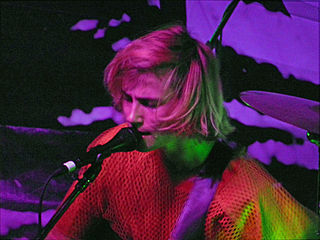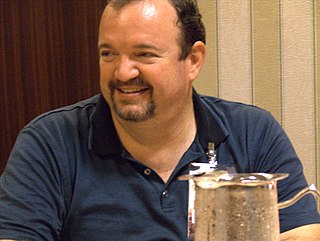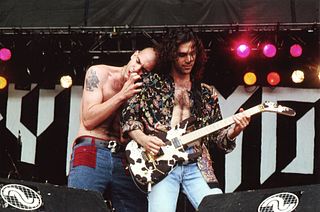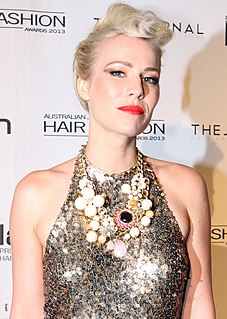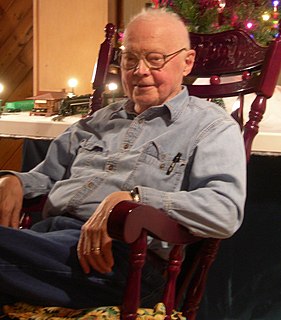A Quote by Melissa Febos
Me writing the book and the subsequent interactions that we had were actually the cap on that experience. We were still in this weird purgatory about it when I published the book. When I gave them the galleys and what ensued after that, then I understood a lot more about our relationships and what the experience meant to them. I'd never wanted to know what they thought about it at all.
Related Quotes
About a year after (my stories began being published), magazine editor George Scithers, suggested to me that since I was so new at being published, I must be very close to what I had to learn to move from fooling around with writing to actually producing professional stories. There are a lot of aspiring writers out there who would like to know just that. Write that book.SFWW-I is that book. It's the book I was looking for when I first started writing fiction.
I didn't want the lyrics to be about specific things in my life, I wanted them to be about generalised experiences I'd had. So when I'm writing about relationships or somebody leaving you or something, a lot of lyrics are partly about failed relationships I'd had, but they were also about my Dad, and being abandoned as a kid.
In my case, I made the decision early on that I was going to be very open about the book and claim upfront that each of the stories was based on my life experience. I think my reasoning goes back to what I was saying earlier, about wanting the book to be "more than a book," that I wanted the reader to feel a little unsettled about what they were reading: there's a core of factual truth here.
[A] couple I had known - who were old friends - asked me what I was going to work on next. I told them I wanted to write a near future book about AIDS concentration camps. They were vehement in their response: they thought it was a terrible idea. Their words both shocked and saddened me. "Do you really want to write a book about homosexuals?" they asked me. "Won't people who read your work be influenced toward sin?" I notice that I don't hear from them much lately.
I was obsessed with the scientific instruments people were building and all the weird experiments they were doing. I did actually wind up working in some of that, but there were whole sections I'd written about these instruments that ultimately had to be abandoned when I realized that the book really was about Margaret Cavendish. I couldn't justify using all of them.
The Hollywood stuff in the book tended to come later. I think it was because I was worried about leading with that stuff. I wanted to try to make sure that the other stories in the book were as interesting. I wanted to spend more time on them and craft them. The thing is, with writing, it's form or content.
I wanted people to trust me, despite anything they'd heard. And more than that, I wanted them to know me. Not the stuff they thought they knew about me. No, the real me. I wanted them to get past the rumors. To see beyond the relationships I once had, or maybe still had but that they didn't agree with.
When I'm writing for a book, it's much more reflective process. I have certain things that may not translate well to the stage, but, when they're on the page, people can really get into them. My first two books were aiming to be funnier, but the third was more about deep exploration. Things about being a parent and growing older that I thought would be perfect for a book.
I came to nonfiction through journalism. My first book was journalism, and it was so frustrating to me, while I was writing it, that I wasn't capturing the moments the way they were when I lived them; I was filtering and re-filtering. I had to come to terms with the fact that I couldn't and shouldn't claim authenticity. Then, when the book was published and I gave readings, I'd hear myself read and it was like I was eavesdropping on a dream - even with myself as the narrator. I knew that guy but couldn't exactly recognize him.
Granny bit her lip. She was never quite certain about children, thinking of them-when she thought about them at all-as coming somewhere between animals and people. She understood babies. You put milk in one end and kept the other as clean as possible. Adults were even easier, because they did the feeding and cleaning themselves. But in between was a world of experience that she had never really inquired about. As far as she was aware, you just tried to stop them catching anything fatal and hoped that it would all turn out all right.
The second book, which was probably more from a professional standpoint - when I read Junot Díaz's Drown, I was like, Oh my god, you can write these stories and people will actually read them beyond your own little community. This guy's book is blowing up and it seems like [he's writing about] the neighborhood that I grew up in. That was a big deal. I read that in graduate school, so that's when I was really taking writing seriously, but I didn't know you could do it. I didn't know you can actually be an author. It was a weird epiphany.


